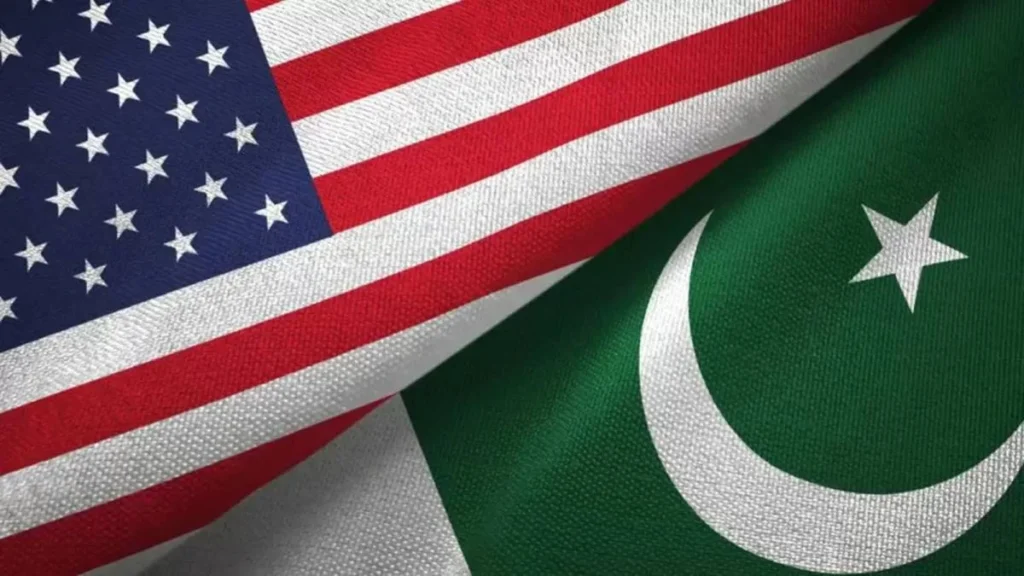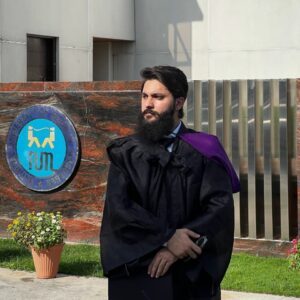Pakistan’s Ambassador to Washington, Rizwan Saeed Sheikh, has reaffirmed that Pakistan-US relations are not a matter of preference but a strategic necessity. Speaking at the Future Security Forum 2025, he emphasized the enduring depth of bilateral cooperation on counterterrorism, climate resilience, and regional peace. Rejecting binary alliances, Sheikh highlighted Pakistan’s balanced diplomacy with both the US and China, while advocating for pragmatic engagement and global stability. His remarks signal a renewed commitment to dialogue, mutual respect and shared progress, positioning Pakistan as a proactive partner in shaping a more secure and interconnected world.
From Strained to Strategic: A New Chapter in Pak-US Relations
In a world increasingly defined by shifting alliances and global uncertainty, Pakistan’s Ambassador to Washington, Rizwan Saeed Sheikh, delivered a timely and assertive message: the relationship between Pakistan and the United States is not optional, it is indispensable. Speaking at the 11th Annual Future Security Forum in Washington, Sheikh emphasized that the bilateral partnership is rooted in shared interests, historical depth and a forward-looking vision.
“Between the two mega countries of today and tomorrow, from both a present and a futuristic perspective, good relations are not a matter of choice or preference; they are indispensable” he declared, signaling a strategic reset in how Islamabad views its ties with Washington.
A Partnership Built on Global Challenges
Ambassador Sheikh reaffirmed Pakistan’s commitment to diplomacy, stability, and pragmatic economic policies. He highlighted the enduring nature of Pak-US cooperation, especially in areas like counterterrorism, climate resilience, and regional peace. From joint efforts in combating extremism to navigating climate-induced disasters, the relationship has evolved into one of mutual necessity.
He thanked the U.S. leadership, particularly President Trump, for facilitating the ceasefire that ended an 88-hour standoff in South Asia, calling it “a vital act that prevented escalation in a nuclear neighbourhood of 1.7 billion people.” This acknowledgment underscored the importance of U.S. diplomatic engagement in maintaining regional stability.
Climate Diplomacy: Pakistan’s Existential Struggle
One of the most compelling aspects of Sheikh’s address was his focus on climate change, not as a distant threat, but as an existential crisis for Pakistan. He described the country’s repeated cycles of devastating floods, cloudbursts, and sequential climate disasters that have wiped out infrastructure and reversed development gains.
“What we build every few years is washed away by floods, but we still must pay back what we borrowed to rebuild,” he noted, illustrating the economic and humanitarian toll of climate vulnerability. Sheikh argued that Pakistan’s diplomacy is now inseparable from climate policy and economic security, urging global partners to recognize the urgency of climate justice.
Kashmir and Regional Peace: A Call for Mediation
Reiterating Pakistan’s principled stance on Indian Illegally Occupied Jammu and Kashmir (IIOJK), Sheikh called for international mediation to help the Kashmiri people realize their right to self-determination in accordance with UN Security Council resolutions. He stressed that peace in South Asia hinges on resolving this longstanding dispute, and that ignoring it risks perpetuating instability.
Navigating China-US Dynamics
Addressing concerns about Pakistan’s ties with China, Sheikh rejected the notion of “camp politics.” He emphasized that Pakistan’s relationship with Beijing is based on historical continuity and economic cooperation, not geopolitical rivalry. “There is no binary choice for us. Our relationship with China didn’t start yesterday, and it is not ending tomorrow,” he stated. He urged observers to view the China-Pakistan Economic Corridor (CPEC) through an economic lens, as a driver of regional connectivity and prosperity.
Sheikh also reminded the audience of Pakistan’s historic role in facilitating rapprochement between the U.S. and China decades ago, expressing readiness to once again serve as a bridge for global peace and progress.
Afghanistan and Terrorism: Diplomacy Over Division
Condemning cross-border terrorism from Afghanistan, Sheikh acknowledged the immense suffering Pakistan has endured due to extremist violence. However, he reaffirmed that diplomacy remains Pakistan’s preferred approach to resolving bilateral tensions, with both Afghanistan and India. “Diplomacy is our preference. Pakistan’s history shows we have always stood for diplomatic solutions,” he said, reinforcing Islamabad’s commitment to peaceful engagement.
On the issue of Afghan refugees, Sheikh clarified that Pakistan is repatriating only undocumented or illegal residents, and aims to do so with dignity. He advocated for visa-based movement across the Pak-Afghan border, aligning with international norms.
Ukraine and Global Peace: Supporting U.S. Efforts
Turning to the Ukraine conflict, Sheikh welcomed peace efforts led by the United States under President Trump’s leadership. He expressed hope for a resolution that upholds international law and humanitarian principles, positioning Pakistan as a supporter of global stability.
A Vision for Balanced Diplomacy
Throughout his remarks, Ambassador Sheikh projected a vision of Pakistan as a pragmatic, peace-seeking nation committed to balanced diplomacy. He rejected zero-sum thinking and emphasized the importance of maintaining constructive ties with all major powers.
His commentary at the Future Security Forum was not just a defense of Pakistan’s foreign policy, it was a blueprint for how middle powers can navigate complex global dynamics with integrity, resilience, and strategic foresight.
Conclusion
Ambassador Rizwan Saeed Sheikh’s address was a reminder that diplomacy, when rooted in principle and pragmatism, can be a powerful tool for peace. His articulation of Pakistan’s foreign policy priorities, climate resilience, regional stability, balanced partnerships, and global cooperation, offered a nuanced and forward-looking Pakistan’s envoy Rizwan Saeed Sheikh calls Pak–US ties a strategic necessity, highlighting cooperation in security, climate resilience, and balanced global diplomacy.perspective.
Also Read: US-Pakistan: Renewed Commitment to Counterterrorism Cooperation


